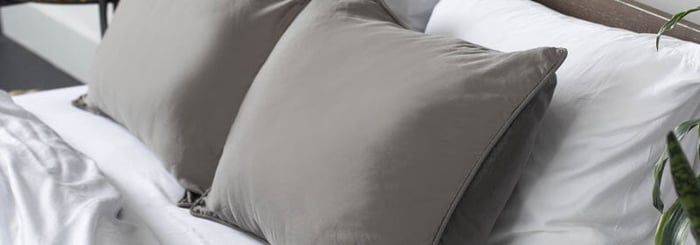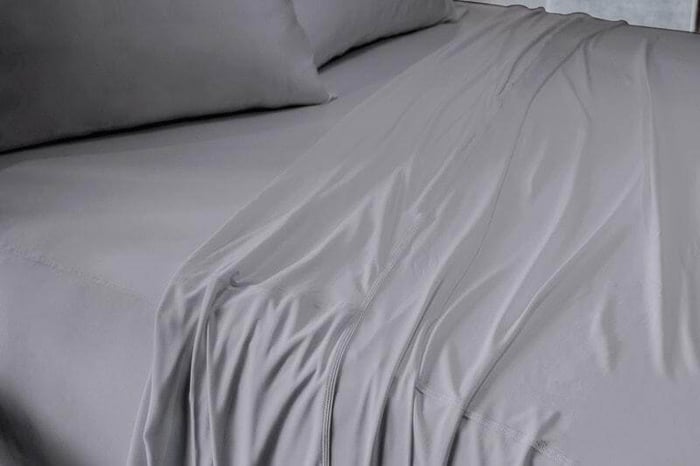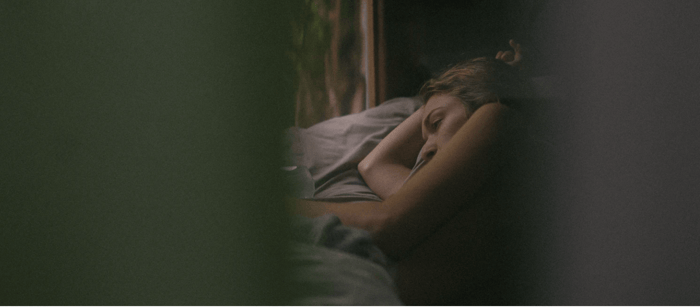The term "sleep deprivation" is often used to describe our feelings after a long night of little sleep. "I am so sleep deprived that I can't even deal," you say to your colleagues, family and friends as you yawn and stretch and try to come alive.
According to Medical News Today, sleep deprivation is what occurs when you consistently get less than the amount of slumber time that you need to feel awake and alert.
So, what exactly causes you to lose so much sleep that you begin to actually coin it as "sleep deprivation?" We can chalk it up to a number of things.
Medical News Today mentions that sometimes sleep deprivation is entirely voluntary. People tend to purposely deprive themselves of sleep to stay late at a party or the office. However, it can also be unintentional with people losing sleep over demanding jobs, family obligations and more. On the more technical side, sleep deprivation can be caused by consistent sleep-wake patterns of going to bed late, frequent nighttime arousals and waking up earlier than a sleep cycle demands. Depression, obstructive sleep apnea and other chronic illnesses can also contribute to sleep deprivation.

According to the Centers for Disease Control and Prevention, sleep deprivation has been linked to many chronic diseases and conditions ranging from diabetes and obesity to depression and anxiety. So, while you're downing multiple cups of coffee in the morning to help you get by, there's still a chance that there's more long-term effects that outlast the benefits of a quick caffeine fix.
And if you're not careful, you might run the risk of taking on these effects mentioned by Healthline:
- Memory issues. When you sleep, your brain forms connections that help you process and remember new information.
- Mood changes and yawning.
- Increased chance of experiencing anxiety and depression.
- Trouble concentrating and problem solving.
- Drowsiness that inevitably causes carelessness and accidents. This includes the disrupted ability for environmental sensory input.
- Weakened immunity. It might take you longer to fight infections.
- High blood pressure and higher blood sugar levels. This could make you a candidate for type 2 diabetes.
- Weight gain caused by overindulging when tired.
- Lower sex drive.
- Poor balance. Say goodbye to your awesome dance moves.
- Risk of heart disease.
Sleep is vital for good health, and the absence of sleep can lead to many problems. But did you know that sleep deprivation varies based on what city you live in?
The experts at Haven Life compiled a list of some of the top U.S. cities that are losing sleep. Over what? We're not sure. But here's a peek at their data, summarized:
15. In Louisville, Kentucky, 38% of the population is sleeping less than 7 hours a night. This puts the city's health statistics below the national average. It's not the same for their neighbors in Lexington, who report better sleeping habits and a better overall health.
14. In Jacksonville, Florida, 38.1% of the population is getting less than 7 hours of sleep at night. Is it because Florida is the Sunshine State? No matter, a little more than 13% of the population is showing signs of poor physical and mental health. To top it off, around 28.5% display a lack of physical activity, and the obesity rate is 31.4%.
13. In Kansas City, Missouri, 38.2% of the population sleeps less than 7 hours a night. While the city is reporting that 75% of its people are physically active, they are still 1.4 percentage points lower than the national average.
12. Over in Atlanta, Georgia, 38.3% of the population is sleep deprived. On the plus side, the city reports better mental and physical health stats than its neighbors on the list. But still, their poor physical health and lack of physical activity is higher than the rest of the country overall.
11. Over in Columbus, Ohio, nearly 40% of folks — 38.9% to be exact — are struggling when it comes to catching Z's. Because of this, the city shows statistics of 13% percent in poor physical health and 14.1% in poor mental health.
10. Come to Milwaukee, Wisconsin and you'll see that 39.2% of the people are getting less than 7 hours of sleep at night. They show poor physical habits compared to their neighbors over in Madison. There, only 29.3% of residents sleep less than 7 hours, and their health outcomes are slightly superior because of that. Did we mention that it's important to get your sleep?
9. In Nashville, Tennessee, 39.4% of residents are losing sleep. Is it the sounds of Music City that are keeping its residents awake? We don't know. What we do know is their poor sleeping habits are taking a toll on their overall health outcomes.
8. This may come as no surprise seeing as though it is deemed the City that Never Sleeps, but New York, New York reports that 39.9% of residents — that's 3.4 million people — are hitting that snooze button a little harder than most. And even though residents typically walk everywhere, the city is still reporting a lack of physical activity at 28.2%.
7. Here comes another city that might not shock you. In Las Vegas, Nevada, 40.5% of residents sleep less than 7 hours a night. Is it the bright casino lights or constant rush of potentially walking away a millionaire that keeps residents awake at night? We will never know. What we do know is that the city's obesity rate is lower than the national average, yet overall health stats show that Las Vegas is falling a little behind.
6. Good ol' New Orleans, Louisiana reports that nearly 41% of its population is suffering from lack of sleep. Even though the spirit of NOLA is strong, its ability to secure the recommended amount of sleep per night is weak. Because of this, the obesity rate - a whopping 34.5% - is 5 percentage points higher than the national average.
5. Back to Tennessee we go with Memphis being another city that's sleepless in the South. This city shows that 41.1% of its residents are tossing and turning at night, getting less than the recommended amount of sleep. On top of that, the city's obesity rate is 11.5 percentage points higher than the national obesity rate.
4. In Cleveland, Ohio, 42.6% of residents are getting less than the recommended 7 hours of sleep. As that number increases, we see a lot of side effects that come along with those restless nights. In fact, the city is the least active on this list with 36.1% of residents suffering from low physical activity.
3. Philadelphia, Pennsylvania demonstrates a tired and restless bunch with 42.6% of the population not getting enough rest. Here, the obesity rate sits at 30.3%, just a little higher than the national average.
2. Baltimore, Maryland shows that 43.2% of its residents don't get the sleep they deserve. Unfortunately, this has its negative effects. The obesity rate pulls in at 36.1%, while the lack of physical activity is at 29.1%.
1. Last but not least, Detroit, Michigan residents are struggling to get some rest - with 50.1% saying they slumber less than 7 hours per night. The obesity rate here sits at 47.4%, a pretty fair number when 35.7% of the population is showing a lack of physical activity. If these numbers teach you anything, let it be that sleep is very important.
What can you do to ensure that you're not a statistic in this list? Move to a different city? Nope. Along with a balanced diet plus exercise, good sleep hygiene starts with SHEEX. It's no secret that we value sleep, and our products are engineered to ensure that you Sleep Cool. Sleep Dry. Sleep Comfortable.™ With the right bedding, you might find yourself catching more Z's today, tomorrow and always. However, there's more to be done.

Remember to be consistent with your bedtime routine, make your room a sanctuary of quietness and darkness, remove electronic devices, get exercise and avoid caffeine in the evening.
Tips from Medical News Today and Healthline include keeping a log to detect irregular sleep patterns, asking your partner if you're doing anything odd in your sleep and deciding to make changes on your own.
Limit your daytime naps, spend an hour before bed doing relaxing activities and try your best to stick to your routine — even on the weekends. Add purchasing a SHEEX Original Performance Sheet Set to the mix and you'll be sound asleep in no time.






